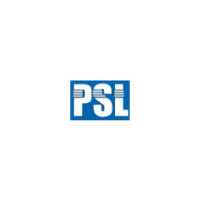About Power standards lab
Power Standards Lab: Solving Power Quality Problems with Innovative Solutions
Power Standards Lab is a leading manufacturer of power quality solutions that help businesses and industries to optimize their energy usage, reduce costs, and improve the reliability of their electrical systems. The company's flagship product, PQube® 3 power analyzer, is a state-of-the-art device that provides real-time monitoring and analysis of power quality parameters such as voltage, current, frequency, harmonics, flicker, and transients.
With over 30 years of experience in the field of power quality engineering and research, Power Standards Lab has developed a range of innovative products that address the most complex power quality problems faced by customers across various industries. The company's team of experts includes electrical engineers, software developers, data analysts who work together to design and deliver customized solutions that meet the specific needs of each customer.
PQube® 3 Power Analyzer: A Game-Changer in Power Quality Monitoring
The PQube® 3 is an advanced power analyzer that offers unmatched accuracy and versatility in measuring various parameters related to power quality. It can be used for both single-phase and three-phase systems with up to four voltage channels and eight current channels. The device can also measure DC voltage/current as well as temperature/humidity using optional sensors.
One key feature of PQube® 3 is its ability to capture high-resolution waveforms (up to 10 MHz) which allows users to analyze transient events such as voltage dips/swells or switching transients with great detail. This feature makes it an ideal tool for troubleshooting complex problems related to equipment malfunction or system instability.
Another advantage offered by PQube® 3 is its cloud-based data management platform called "PQView". This platform enables users to access real-time data from multiple devices located at different sites through a web browser or mobile app. Users can also set up alarms/alerts based on predefined thresholds for any parameter being monitored which helps them take proactive measures before any critical event occurs.
Capacitor Banks: Improving Energy Efficiency & Reducing Costs
Power Standards Lab also offers low-voltage (LV) capacitor banks designed for improving energy efficiency by reducing reactive power consumption in industrial/commercial facilities. These banks are available in various configurations ranging from fixed/automatic switched units with ratings up to several hundred kVARs.
The LV capacitor banks are equipped with advanced control algorithms that ensure optimal performance under varying load conditions while minimizing harmonic distortion levels. They are also designed for easy installation/maintenance which reduces downtime/costs associated with servicing these units.
Active Harmonic Filter Banks: Mitigating Harmonic Distortion & Compliance Issues
Harmonic distortion caused by non-linear loads such as variable frequency drives (VFDs), rectifiers/inverters can lead to several issues including reduced equipment lifespan/failure rates or even compliance violations due to excessive THD levels exceeding regulatory limits.
To address these issues effectively Power Standards Lab offers medium-voltage (MV) active harmonic filter banks capable of mitigating harmonic distortion levels up-to THD<5%. These filters use advanced control algorithms based on instantaneous reactive theory (IRT) which ensures fast response times (<1ms) while maintaining high efficiency (>98%).
Conclusion:
In conclusion Power Standards Lab has established itself as a leader in providing innovative solutions for solving complex problems related to power quality optimization/reliability across various industries worldwide. With its cutting-edge technology products like PQube® 3 analyzer along-with LV/MV capacitor/active filter banks it continues delivering value-added services/products helping customers achieve their goals efficiently/effectively while reducing costs/downtime associated with traditional methods/approaches.
